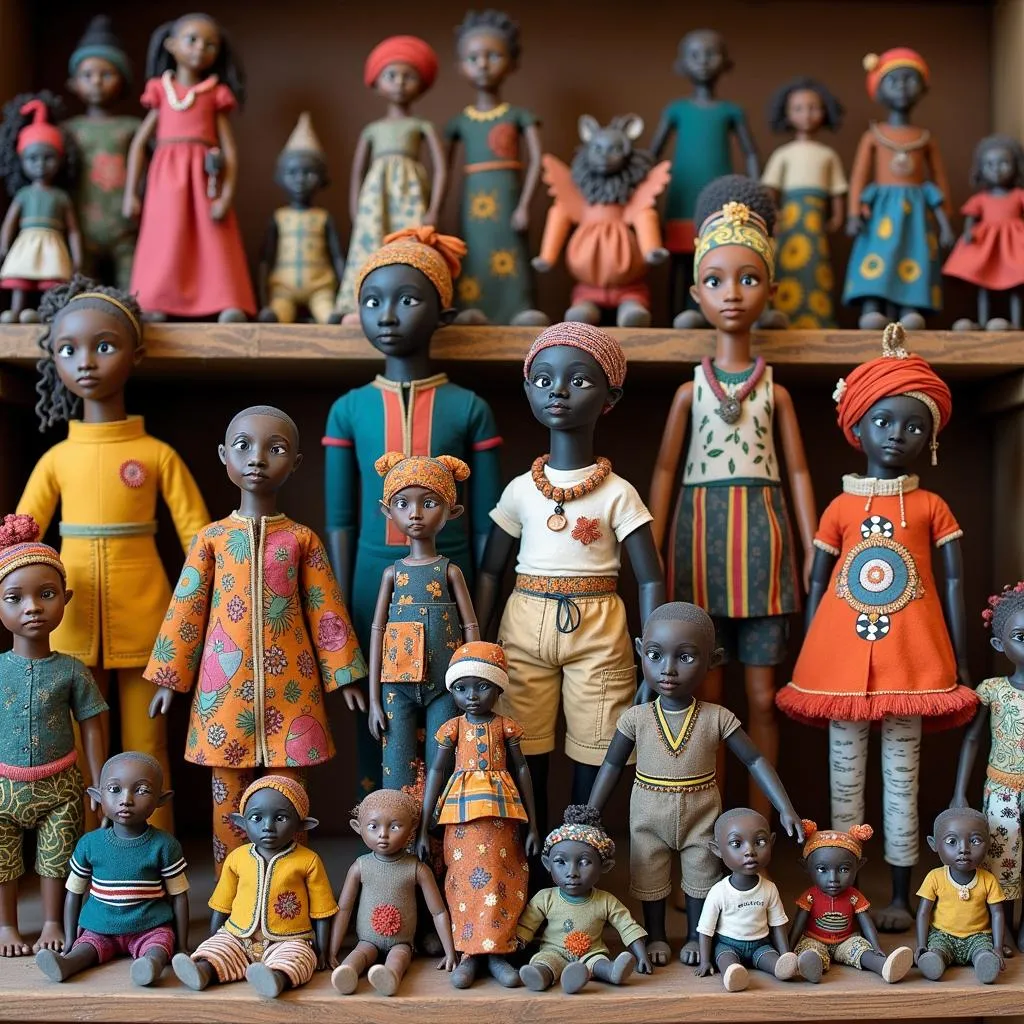The Unique African Dog Breed That Doesn’t…Bark? The Basenji
The African dog breed that doesn’t bark in the traditional sense is the Basenji. This unique canine, hailing from Central Africa, produces a yodeling sound rather than a bark, adding to its mystique and allure. Let’s delve into the fascinating world of the Basenji, exploring its history, characteristics, and what makes it such a special breed.
Unveiling the Mystery of the “Barkless Dog”
The Basenji’s unusual vocalization, or lack thereof, stems from the shape of its larynx. The narrow and flat vocal cords prevent the typical barking sound. Instead, they produce a unique “yodel” or “chortle,” which has earned them the nickname “barkless dog.” This fascinating trait has intrigued dog lovers and researchers for decades. But the Basenji offers much more than just a quiet demeanor.
A History Steeped in Ancient Africa
The Basenji’s history is as rich and captivating as the continent it originates from. Depicted in ancient Egyptian artwork and revered as hunting companions by various Central African tribes, these dogs possess a lineage that stretches back centuries. Their natural hunting instincts and intelligence made them invaluable assets to their human companions. These elegant canines were often presented as gifts to pharaohs, a testament to their esteemed status.
The Basenji’s Distinctive Personality and Traits
Basenjis are known for their intelligence, independence, and meticulous grooming habits. Much like a cat, they often meticulously clean themselves. Their short, fine coat requires minimal grooming, making them a relatively low-maintenance breed. Their playful and curious nature, combined with their inherent intelligence, makes them a joy to be around, although their independent streak can sometimes present a training challenge.
Caring for a Basenji: What You Need to Know
Bringing a Basenji into your life requires understanding their specific needs. These active dogs thrive on both physical and mental stimulation. Daily exercise, combined with puzzle toys and interactive games, is essential to keep them happy and engaged. Their intelligence can be both a blessing and a curse, as they can be prone to mischief if bored or under-stimulated.
Is a Basenji Right for You?
The Basenji, the African dog breed that doesn’t bark, can be a wonderful companion for the right owner. Their unique vocalizations, intelligence, and affectionate nature make them a truly special breed. However, their independence and need for consistent training should be considered before bringing one home. If you are looking for an active, intelligent, and relatively low-maintenance dog with a fascinating history, the Basenji might just be the perfect fit.
Expert Insights on the Basenji
Dr. Anika Mosi, a renowned veterinarian specializing in African dog breeds, shares her perspective: “The Basenji is a truly remarkable breed. Their unique vocalization, coupled with their intelligence and independence, sets them apart. They are a joy to work with, and their history is as fascinating as their personality.”
Another expert, seasoned dog trainer Jabari Kenyatta, adds: “Training a Basenji requires patience and consistency. Their independent nature can make them a bit challenging, but their intelligence allows them to learn quickly with positive reinforcement methods.”
Conclusion
The Basenji, the African dog breed that doesn’t bark, offers a unique blend of history, personality, and charm. This ancient breed, with its distinctive yodel and independent spirit, can be a rewarding companion for those willing to understand and cater to its specific needs. If you’re looking for a dog that stands apart from the crowd, the Basenji is definitely worth considering.
FAQ
- Do Basenjis bark at all? While they don’t bark traditionally, they do produce a yodeling sound.
- Are Basenjis good family dogs? They can be, but their independence requires careful consideration of family dynamics.
- How much exercise does a Basenji need? They require a significant amount of daily exercise, both physical and mental.
- Are Basenjis easy to train? Their intelligence makes them capable of learning, but their independent streak can be challenging.
- What is the lifespan of a Basenji? They typically live between 12-16 years.
- Are Basenjis good with other pets? Early socialization is crucial, especially with smaller animals.
- Do Basenjis shed a lot? They are considered a relatively low-shedding breed.
Need More Help?
For further assistance and information about Basenjis or other African dog breeds, explore other articles on our website related to dog breeds, care, and training.
Need personalized advice? Contact us: Phone: +255768904061, Email: [email protected] or visit us at: Mbarali DC Mawindi, Kangaga, Tanzania. We have a 24/7 customer service team ready to assist you.


